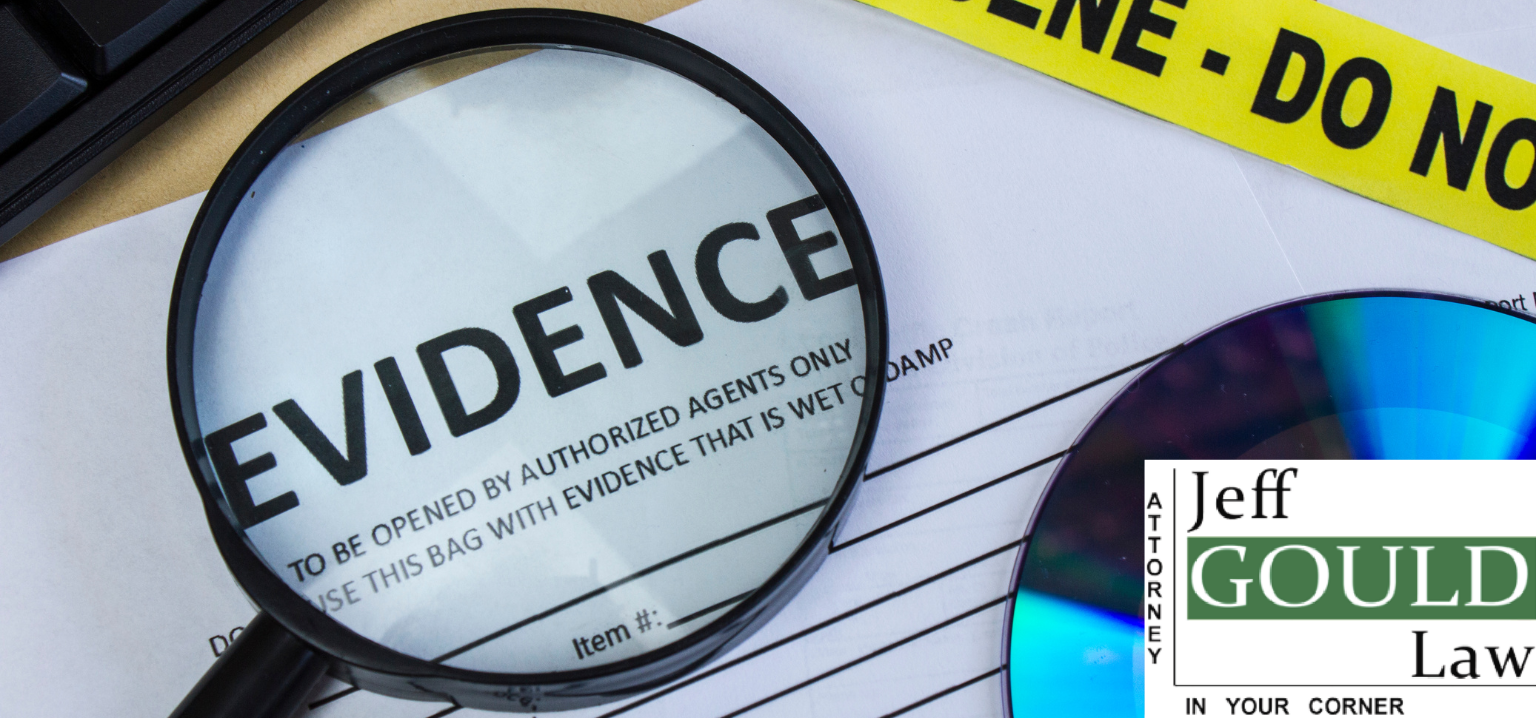In the world of criminal defense, evidence is the cornerstone upon which cases are built and won. At Jeff GOULD Law, the Attorney In YOUR Corner, we understand the critical importance of evidence and how it can make or break your defense. Let’s explore the various types of evidence used in criminal defense cases and their significance in securing a favorable outcome.
Table of Contents
Types of Evidence in Criminal Defense
1. Physical Evidence
Physical evidence refers to tangible items that can be presented in court. Some examples include weapons, clothing, or any objects related to the crime scene in question. For example: DNA samples; fingerprints; and bloodstains would fall under this category. The integrity and proper handling / chain of custody of physical evidence is crucial, as any tampering or contamination can render it inadmissible. If any tampering or contamination is suspected, this is something that the defense can use in defending your case.
2. Documentary Evidence
This type of evidence includes documents supporting or refuting a claim. Examples are written contracts, emails, text messages, photographs, and recorded videos. If you are the injured victim in a personal injury case, medical documents regarding your injuries could be key to the outcome of your case. Documentary evidence can provide a clear and factual basis for establishing timelines, motives, and actions taken by involved parties.
3. Testimonial Evidence
Testimonial evidence is provided by witnesses. This includes eyewitness testimonies, witness statements, and character witnesses. The credibility of these witnesses and their ability to withstand cross-examination play a significant role in the weight given to their testimony by the court.
4. Digital Evidence
In our technologically advanced world, digital evidence has become increasingly prevalent. This includes data from computers, smartphones, and other electronic devices. Social media posts, browsing history, GPS data, and emails can all be pivotal in proving or disproving elements of a case.
5. Exculpatory Evidence
Exculpatory evidence is any evidence that may exonerate a defendant or reduce their culpability. Prosecutors are legally required to disclose any exculpatory evidence to the defense. This type of evidence can be crucial in proving a defendant’s innocence or mitigating their responsibility for the crime.
6. Circumstantial Evidence
Circumstantial evidence implies a fact or event without directly proving it. This can include things like a person’s behavior before or after a crime or indirect connections to the crime scene. While it doesn’t provide direct proof, circumstantial evidence can be very persuasive when multiple pieces come together to form a cohesive narrative.
The Importance of Evidence in a Strong Case
At Jeff GOULD Law, the Attorney In YOUR Corner, evidence will be meticulously gathered and analyzed to build the strongest possible defense for our clients. Evidence is crucial in establishing reasonable doubt, discrediting the prosecution’s evidence, supporting your defense narrative, and negotiating plea bargains if necessary.
The role of evidence in criminal defense cases cannot be overstated. Each type of evidence–physical, documentary, testimonial, digital, exculpatory, and circumstantial–plays a unique and vital part in building a robust defense. We leverage our extensive knowledge to handle and present evidence, ensuring the best possible outcome for our clients. If you or a loved one is facing criminal charges, then…
Don’t DELAY: Call Jeff GOULD Law, the Attorney In YOUR Corner – TODAY!
DISCLAIMER: The information on this blog/site is NOT, nor is it intended to be legal advice. It is for general informational use only. You should consult an attorney for advice regarding your situation. Further, this information does not create an attorney-client relationship.


